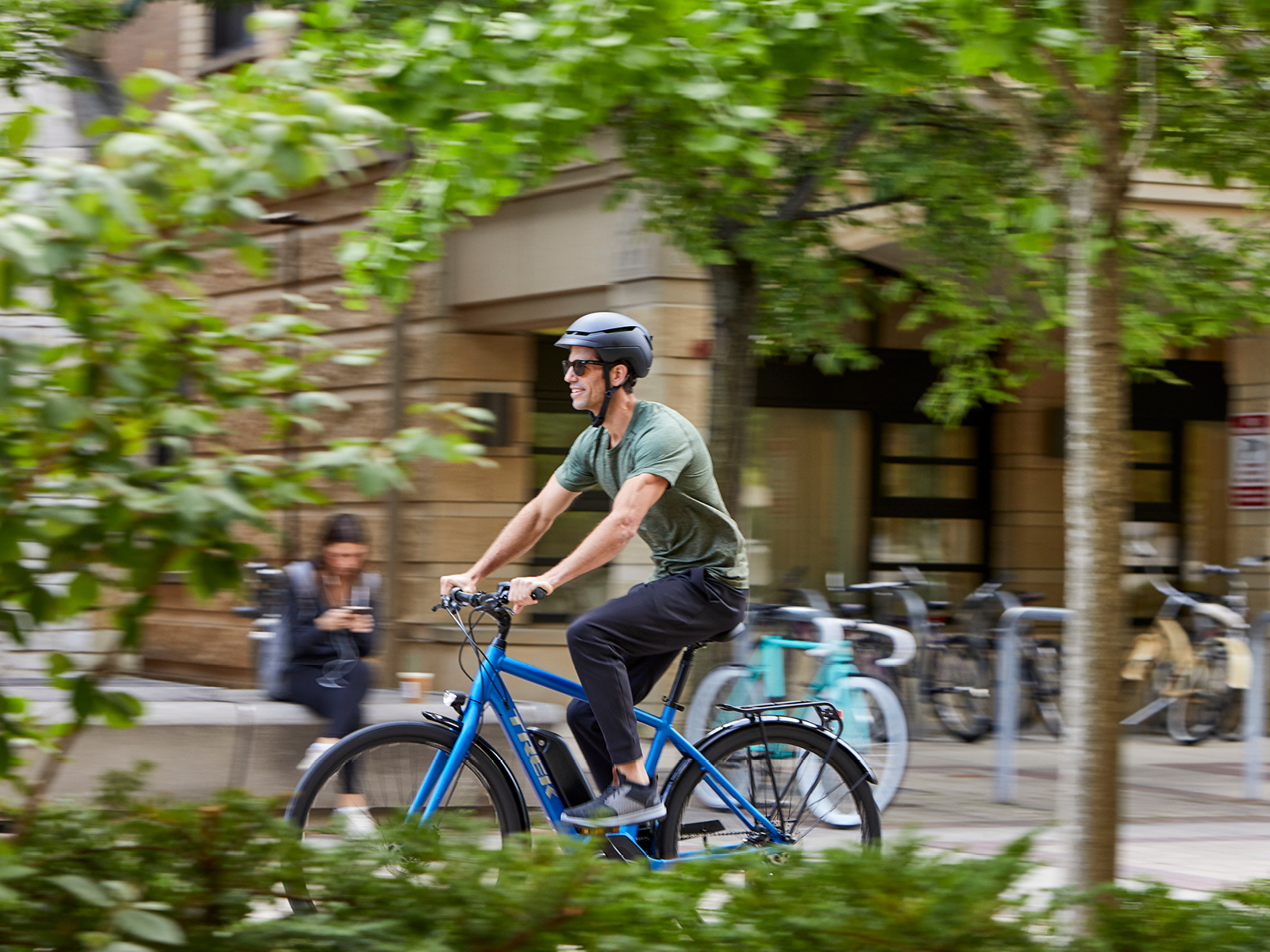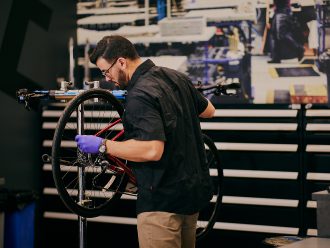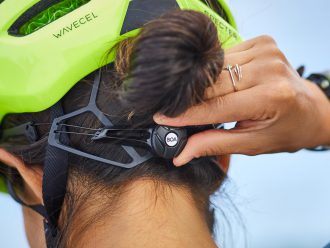- Responsibility
- #GoByBike
- 28 April, 2021
- Trek
Key findings show bikes as climate solution New research from the University of Wisconsin-Madison demonstrates how bikes can improve health and combat climate change
Humans are facing two growing challenges to our health and safety: the steady rise in chronic diseases around the world and climate change. Tackling these two issues can seem like a daunting undertaking, as one is based so much on the individual, while the other is so, well, global. But what if one change in human behavior could become a solution for both issues simultaneously?
With a shared commitment to the betterment of our planet and people, Trek teamed up with researchers from the Health Oriented Transportation Initiative (HOT) at the University of Wisconsin-Madison Global Health Institute on a new research endeavor that shows the health and environmental benefits of cycling in the United States. In U.S. metropolitan areas, less than one percent of trips are taken by bicycle—presenting a significant societal opportunity if there were to be a shift in behavior. The research demonstrates cycling, over routine driving, is one of the most effective ways to improve human health and combat climate change.
Click here for a white paper with the full study and additional information about the research. Below are a few key takeaways on the potential health and environmental benefits of cycling in the U.S.
If cycling trips replaced car trips at a cycling mode share of 6 percent
20,000 annual deaths due to chronic disease could be averted in metropolitan areas
$1.2 billion each year in global benefits would be provided due to climate change mitigation
$780 million a year would be saved in health costs due to the improvement in air quality
7,000 days of work lost to illness would be averted
28,000 fewer cases of cardiovascular disease would occur each year
22,000 fewer cases of diabetes would occur each year
If cycling trips replaced car trips at a cycling mode share of 15 percent
40,000 deaths could be averted through increased physical activity. This is roughly equal to the number of people who die in automobile and motorcycle accidents each year.
If cycling trips replaced car trips at a cycling mode share of 40 percent (“The Amsterdam Standard”)
70,000 deaths due to chronic disease could be averted each year.

About the Author: Trek
Our mission: we build only products we love, provide incredible hospitality to our customers, and change the world by getting more people on bikes.





